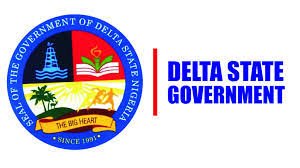The Delta State Government has disclosed plans to present a historic budget size of over ₦1 trillion for the 2026 fiscal year, the first of its kind in the state’s history.
The Commissioner for Economic Planning, Mr. Sonny Ekedayen, who represented Governor Sheriff Oborevwori at a citizens’ engagement on the preparation of the 2026 budget held at Government House Asaba on Thursday, said the landmark budget will reflect the robust revenue performance of the state and improved federal allocations.
According to him, the draft budget is still a work in progress and will form part of the M-10 document to be submitted to the State Executive Council this month. He, however, confirmed that the final envelope will exceed ₦1 trillion, driven largely by increased FAAC receipts following the removal of fuel subsidy and steady growth in Internally Generated Revenue (IGR).
Ekedayen stressed that despite the huge size of the 2026 budget, the state government would not resort to borrowing.
“Even though it is going to be a trillion-plus budget, I can assure you the governor intends to fund it organically,” he stated.
Highlighting the structure of the budget, the commissioner revealed that at least 67 percent of the proposed spending will go into capital projects, while 33 percent will be allocated to recurrent expenditure.
He described the ratio as unprecedented and reflective of Governor Oborevwori’s vision to accelerate infrastructure development across the state.
The commissioner also reviewed the performance of the 2025 budget, noting that the state had recorded significant progress through fiscal discipline and prudent financial management. He said government had put in place stringent financial control measures, reduced waste, and lowered the state’s public debt profile, thereby creating room for sustainable growth.
On revenue generation, Ekedayen explained that without introducing new taxes or imposing undue burdens on citizens, the administration widened the tax net, blocked leakages, and improved compliance. This, he noted, enabled a steady growth in Internally Generated Revenue and allowed the government to fund critical projects without heavy reliance on federal allocations.
He pointed to visible results across sectors, including infrastructural renewal, road and bridge construction, upgraded healthcare facilities, improved schools, housing projects, and investments in the energy sector. The administration, he added, is also supporting agriculture, youth empowerment, and entrepreneurship through access to training, resources, and finance.
Ekedayen assured citizens that projects not captured in the 2025 budget would be accommodated in the new fiscal year, provided they are of community and economic benefit. He further appealed to Deltans to remain supportive of government initiatives and to maintain peace in their communities, stressing that stability was key to attracting investment.
“Delta is a safe state, and we want to continue projecting that image nationally and internationally. With our youthful population, numbers, and resources, we are ready to welcome investors and create opportunities for our people,” he said.
The commissioner described 2026 as a year of “bigger and brighter opportunities,” reiterating that the government would sustain a people-centred approach in its budgeting process.
The engagement also featured goodwill messages from civil society, professional bodies, traditional rulers, and other stakeholders, all commending the government’s inclusive approach to governance.
Speaking for the traditional institution, His Royal Majesty Obi Clement Ejiofor applauded the Ministry of Economic Planning for the openness and accountability displayed in the budget process.
Also, Chairman of President General Forum, Delta State, Prince Igwe Nzekwe who spoke on behalf of President Generals, commended Governor Oborevwori’s inclusive style of leadership, noting that communities have been carried along in decision-making and project execution.
He pledged the continued partnership of grassroots leaders in ensuring that government policies reach every corner of the state.
Delivering a message on behalf of the College of Commissioners, Mr. Charles Aniagwu appreciated citizens for their feedback and partnership with government. He assured that the administration remains committed to transparency in project execution and urged citizens to take advantage of public monitoring and feedback platforms to report shortcomings in government projects.
While calling for sustained transparency, he also appealed for greater investment in infrastructure, especially road projects, which he said are crucial for farmers, traders, and businesses.
Read also:
- 9 killed in multiple Road crashes at Ogwashi-Uku Junction, Delta State
- Delta State bans fake hair, long eyelashes, bushy beards in shocking new dress code for Civil Servants
- DELTA State Police command says it has launched a manhunt for Delta-based Human Rights Activist, Comrade Victor Ojie, popularly known as
Speaking on behalf of civil society, Mr. Rex Anighoro praised the state for creating platforms that allow citizens to be actively involved in governance. He urged the government to consistently capture civil society contributions in developmental planning and called for greater independence of civic groups to enable them serve more effectively as watchdogs.
Representing professional bodies, Mr. Voke Ighorodje said the engagement demonstrated the government’s seriousness about transparency and participatory governance. He urged more attention to critical sectors such as education, healthcare, and social security, which he described as fundamental to the wellbeing of citizens.
The engagement ended with stakeholders reaffirming their commitment to support the state government’s vision of building a prosperous Delta through collaborative governance.






